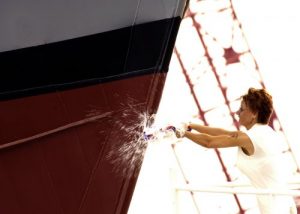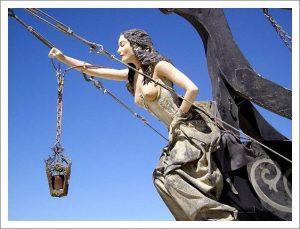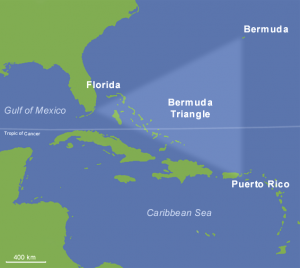Work at sea has changed dramatically for the past decades. Where seafarers were lost in the middle of nowhere without satellite connection, weather reports, radars, etc. a mere century ago; modern mariners take advantage of clear passage plans, regular port callings and Internet communication with their loved ones.
But try to picture a life at sea just a couple of centuries ago: you’ve got no technological aids and navigational knowledge is a privilege of the few. In the absence of a firmer basis people grasped for superstitions and lucky rituals as they gave them the illusion of control over hostile and unpredictable environment that surrounded men. Shreds of these beliefs can be traced onboard even today. We have collected Top 10 seafarer’s superstitions and their origin.
1. Vessel Naming and Launching Ceremony

The tradition to celebrate a newbuilding launching has long roots. The Babylonians and Egyptians had been spotted same rituals as early as 3 thousand years ago. They have sacrificed an ox to ensure Gods will safeguard the ship and its occupants. Ancient Greeks and Romans have also celebrated the birth of a new vessel with sacrificing animals as a gift to their respective Gods.
Later, the tradition to grease skids with blood has emerged during the Vikings’ time. They used to tie their captives to skids, so drakkars started splashing blood from the moment they slid into water. With the spread of Christianity, this ritual has transformed into smashing a bottle of wine into a bow. Wine or champagne symbolizes blood, but nobody remembers grim sources of a good tradition.
There are also some long-established superstitions connected with naming:
- It is considered a good luck for a woman to christen a vessel.
- It is suppossed that ship names ending with the letter “a” are cursed. This superstition might have occurred after the Lusitania and Britannia shipwrecks during the WWI. However, today it is almost forgotten and hundreds of vessels bear names with “a” at the end.
- Same goes for a belief that changing a vessel name is a bad sign. Today it is a common practice for a merchant ship to change a names with a shipowner.
2. No Women Onboard?
Having women onboard is a bad luck. Curiously enough this superstition is alive even today when female officers have penetrated bridge teams and feel comfortable in the engine rooms. This notion had a logic explanation in the past, though; having a woman onboard would have resulted in jealousy and distraction for a crew huddled together for many months within confided space of a ship.

Meanwhile, as it often happens with myths and legends, there is some incoherence here, because it is definitely considered a good luck to have a baby born on a vessel. Moreover, everything else connected with women and sea was deemed a good luck, especially if ladies were naked and curvaceous. All cultures carved and painted female symbols on their ships to protect them at sea.
However, the true golden age of figureheads came in the 19th century when every tall ship bore a figure of Greek goddess, prominent queen or simply vessel owners’ daughter or wife to pacify the sea and bring luck for the enterprise.
3. Fishermen – Champions of Seafarers’ Superstitions
While seafarers conquer high seas, fishermen have to outmaneuver one more element. Even today, despite GPS, fathometers and radar technologies a lot depends on luck in the fishing industry. So it is no wonder that fishermen appear even more prone to various superstitions:
- Meeting a redhead is a bad omen. The superstition, probably, goes back to the Vikings’ times as well. Many of them were ginger headed and seeing a gang of Vikings was a sure sign of trouble.
- Nets must be sprinkled with a salt for good hauls at the beginning of the season.
- Lucky clothes and garments. Similar to athletes who will wear same T-short or socks while their winning streak lasts, fishermen have their lucky hats or jackets that ‘guarantee’ good takes.
- Playing guitar or violin during fishing is a good sign because it is supposed that fish likes music (no comments).
- Don’t whistle when fishing. There are two versions of this superstition’s origin. The first is that one might whistle up a gale; and the second is that like women fish don’t enjoy being summoned by a whistle. Swearing and loud talking is condemned during fishing due to the same reason.
- Never show anyone your lucky spot. However, that’s really not a superstition, but prudence.
4. Tattoos and Earrings Bring Luck to Seafarers
It is a common knowledge that a seafarer has received a right to pierce an earlobe after he had crossed the equator or circled the globe. But apart from bringing an honor to its owner, an earring remained a piece of gold, so was able to buy its wearer out of trouble even when he had squandered all his money away. So wearing earrings has gradually become a synonym of staying safe.
The same goes for lucky tattoos. They didn’t just bring positive emotions to the owners, but might have served the purpose of easing identification after their death, so remained in memory as a good sign.
5. Bad Days to Start a Trip
There is a superstition against starting a voyage on Friday which presumably originates from the fact that Jesus was crucified on that day. There is even an exciting though fishy story about HMS Friday, a British navy vessel, which was laid down, launched and named Friday to overcome this popular superstition. The tale is that nobody has seen her after she had left for her maiden voyage.
Not only Friday is condemned, though. Thursdays are bad, because it’s Thor’s day, who is the God of thunder and storms. First Monday in April was dismissed because Cain slew Abel on that day; and 2nd Monday in August is the day when kingdoms of Sodom and Gomorrah were destroyed, so no ships dared to leave ports on that days. Meanwhile, today schedules are made disregarding of this fascinating biblical and mythological background without any disastrous consequences.
6. Bananas are Bad Luck on a Vessel
This myth might have appeared due to poisonous spiders that lurked among bunches and bit crew members. Another explanation is that bananas were banned onboard because they emit ethylene during fermentation and, without adequate refrigeration, spoilt other food onboard .
One more theory explains that floating banana bunches were usually seen at the places of shipwrecks, so people started associating bananas with marine accidents.
7. Never Kill an Albatross

There used to be a belief that seabirds transport souls of dead sailors, so killing them was considered a great sin. On the contrary, seeing a bird at sea was a good sign because it meant that a ship was nearing the land.
Other superstitions connected with animals include dolphins following a vessel meaning a good luck contrary to sharks which, no surprising, are considered a sign of death.
8. Signals of Fate
In addition to animalistic omens, seafarers’ community has developed a wide variety of lucky and unlucky signs to navigate through the ocean of mundanity. Thus, for instance:
- Bringing flowers onboard was a taboo since they were associated with funerals.
- Words “Good luck” were forbidden since they tempt fate.
- Stepping onboard with a left foot was considered a bad omen.
- Looking back once onboard was prohibited either.
- Clergymen were not welcomed due to death associations as well.
- However, black cat was a good sign which means soon home coming;
- Furthermore, pouring wine on a deck is a blessing for a happy voyage (again a reference to blood and sacrifice).
9. Pay your Debts
In former times seafarers tried to pay their debts before going to sea. People understood that they might never return from their voyage, so settled their affairs before joining the vessel. Gradually, the popular practice has transformed into a belief that sailors who haven’t paid their debts are guilty of all the storms and misfortunes that the crew suffered, so a debtor might have been thrown overboard.
10. The Bermuda Triangle

Amazing, but at the age of satellite technology, autonomous navigation and robotics people are still fascinated by the mysteries of the Bermuda Triangle. The ill-reputed area stretches between the Straits of Florida, the Bahamas and around the entire Caribbean islands area to the Azores. Columbus first has noted that a compass goes haywire there; and dozens of vessels and aircrafts have disappeared in the “Devil’s Triangle” since that time.
The theories explaining disappearances include time vortex, aliens i.e. UFO portal, lost city of Atlantis, a comet, government testing and many other engaging hypotheses. Meanwhile, today it is confirmed that the Bermuda Triangle is not the only place on Earth where the compass anomaly is observed; and past accidents are most likely attributed to human and machine errors or weather conditions rather than to the mystery of the place.

